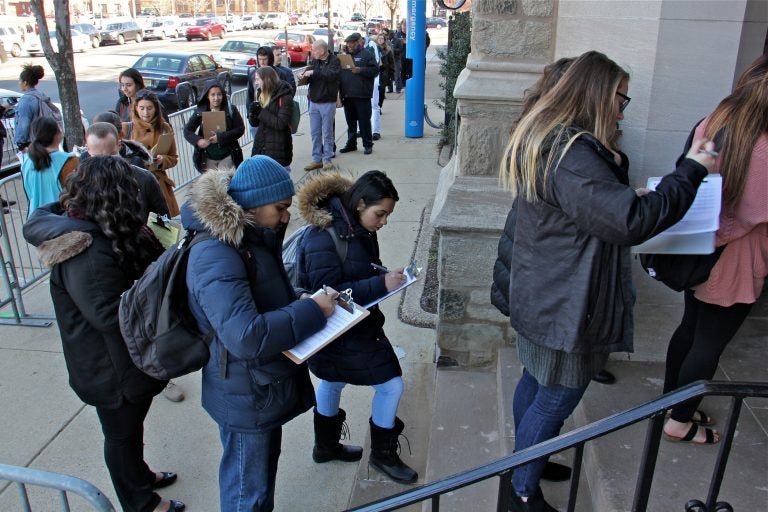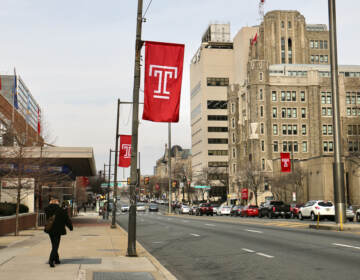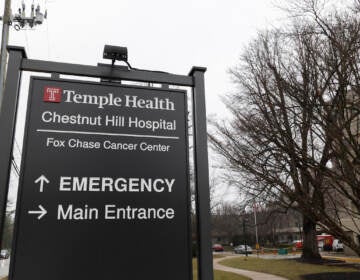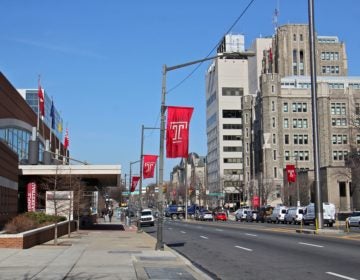Temple had no new cases of mumps Monday, for first time since outbreak began
About five to 10 reported cases of the disease continue to come in daily, but that number is slowly decreasing.

Students and faculty at Temple University line up outside Mitten Hall for free mumps vaccinations. The university scheduled two vaccination clinics after a mumps outbreak sickened more than 100. (Emma Lee/WHYY)
The number of mumps cases in Philadelphia stemming from an outbreak at Temple University stands at about 140, city public health officials say.
But although five to 10 reported cases continue to come in daily, James Garrow, the department’s director of communications, said Tuesday that the number is slowly decreasing.
The majority of the cases have been at Temple, but mumps also has been reported at Drexel University, West Chester University, and the University of Pennsylvania.
Mark Denys, director of student and employee health services at Temple, said that on Monday there were no new cases, which he described as “a beautiful thing.” It was the first time that has occurred since the outbreak began in February.
At this point, Denys said, there are no plans for another large-scale vaccination clinic such as the ones the university hosted on campus March 27 and 29. Nearly 5,000 students received the measles-mumps-rubella, or MMR, vaccine over the course of those two days.
“We’ve been having extra staff in our office giving the vaccine to anyone who either makes an appointment or walks in for it, and demand for that has started to go down over the last few days,” Denys said.
Smaller clinics targeting higher-risk groups are planned, however, including one for student athletes scheduled for Thursday. Other groups at high risk include pregnant women, people with autoimmune disorders, health-care workers, and people who have traveled internationally recently.
Denys said student athletes spend a lot of time together in close quarters, which makes them more susceptible to the virus that causes mumps.
“The way the mumps is spread is close contact and direct contact with saliva and respiratory fluids,” he said. “There’s a lot better a chance for people playing sports together, coming in that kind of contact, then somebody just sitting in a classroom together.”
Although he sees Monday’s lack of new cases as a sign the university’s strategies to fight the outbreak are working, Denys said he thinks there will be new cases reported through May, when the university’s spring semester ends.
“I think yesterday was a great day, but we may see one or two today,” Denys said. “The hope is that they are going to continue to go down and continue not to have the large numbers of new cases such as we experienced in the middle of March.”
Since the beginning of the outbreak, Temple’s student health office has been bringing in extra staff daily to provide the vaccine to more students. Denys estimated that more than 6,000 people have been vaccinated, just from the student health office alone.
He said local pharmacies and urgent-care centers also have administered a significant number of vaccines.
A big step in preventing the spread of mumps is self-isolation for at least five days, which Denys said will continue to slow down new cases.
—
This story has been updated to reflect the latest mumps cases.
WHYY is your source for fact-based, in-depth journalism and information. As a nonprofit organization, we rely on financial support from readers like you. Please give today.





